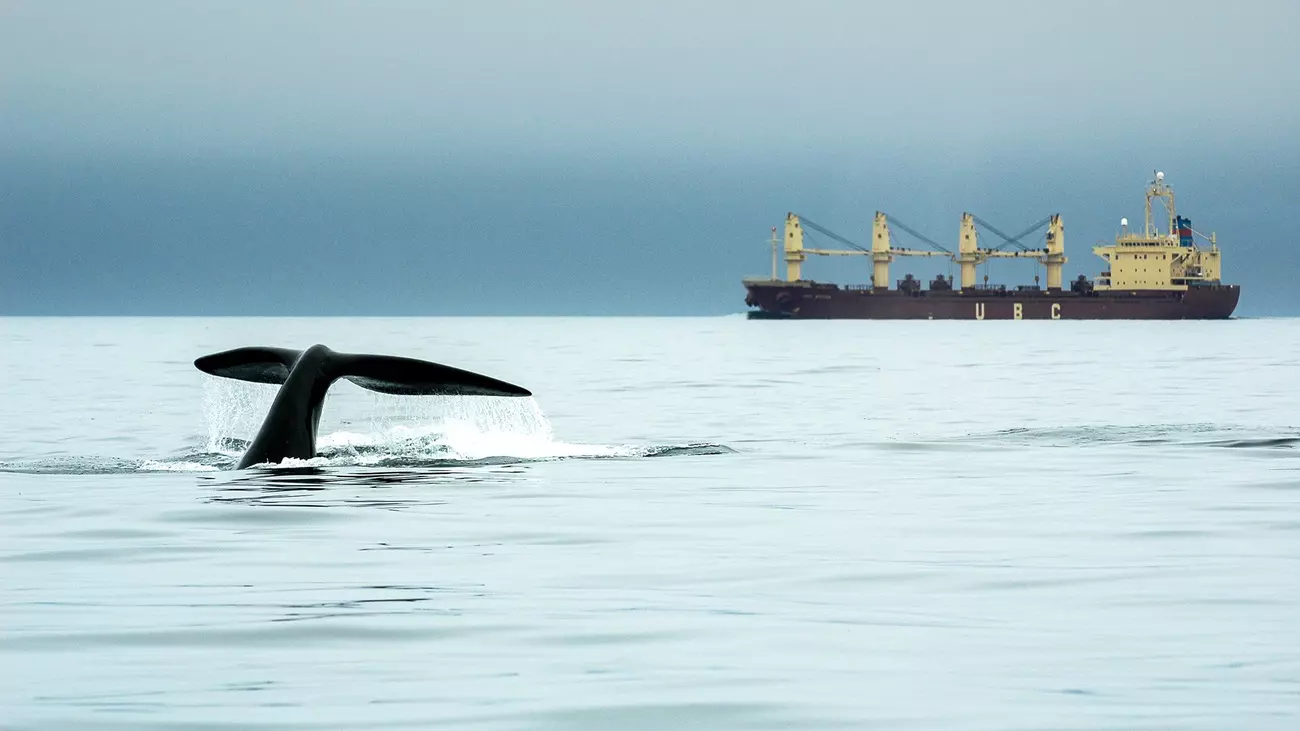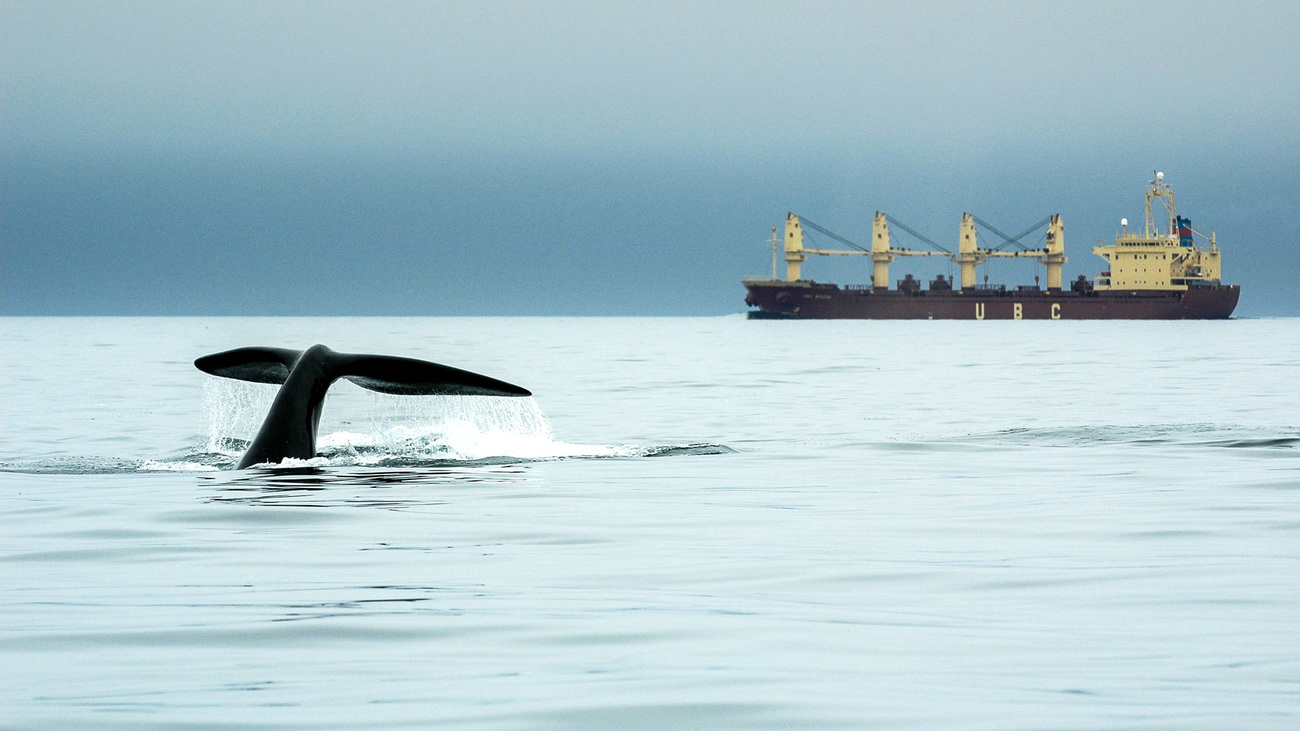It was the ocean protection event of the year—perhaps even of the decade. And I was there.
The Third United Nations Ocean Conference (UNOC-3), held in Nice from June 9 to 13, 2025, and co-hosted by France and Costa Rica, marked a decisive turning point in the protection of marine ecosystems. With 175 countries represented—including 64 heads of state and government—and over 12,000 delegates in attendance, the event brought together all key stakeholders to accelerate action for ocean conservation.
A Historic Mobilization for Ocean Protection
As Marine Conservation Campaigner at IFAW, I was on site to urge policymakers to take action to better protect marine animals such as whales and dolphins, and to raise public awareness about the threats facing marine life, especially underwater noise pollution.
The challenges ahead are immense, but I am deeply convinced that there is still time to act to save our ocean—provided we put in all our heart, energy, and unwavering political will.
What were the key commitments of the Conference?
- Creation and expansion of marine protected areas
- New ratifications of the treaty for the protection of the high seas
- Call for the adoption of an ambitious global treaty against plastic pollution
- Birth of an international coalition for a Quiet Ocean
Ending Underwater Noise Pollution: A Long-Overdue Priority
Underwater noise pollution is caused by human activities such as maritime transport, oil and gas exploration, and military sonar. This chronic noise severely disrupts cetaceans and many marine species that rely on sound for feeding, communication, and navigation.
On June 10, 2025, a historic breakthrough took place: the launch of the High Ambition Coalition for a Quiet Ocean, led by Panama and Canada. Joined by 37 countries at its launch, including France, it is the first political coalition aiming to coordinate concrete actions against underwater noise.
Reducing ship speeds would significantly reduce underwater noise, collisions between ships and cetaceans, and greenhouse gas emissions.
President Emmanuel Macron himself emphasized that this measure should become a European priority.
We will now ensure that these countries’ commitments translate into concrete actions through the adoption of binding regulations to make sure noise-generating industries operate more quietly.
Political Support
As part of the launch of the High Ambition Coalition for a Quiet Ocean, ministers from around the world gathered to sign a declaration committing to implement measures to reduce underwater noise and limit its impact on marine life.
Agnès Pannier-Runacher, Minister of Ecological Transition, Biodiversity, Forests, Sea and Fisheries, personally signed this declaration. I also met Barbara Pompili, environmental ambassador, who pledged to promote IFAW’s Blue Speeds initiative at the European level, agreeing it was the most effective short-term solution to reduce this threat to marine life while also benefiting the maritime sector. The path toward binding regulations for a quieter ocean is now open.
Blue Speeds: An Environmental, Economic, and Realistic Measure
We have repeatedly presented IFAW’s Blue Speeds initiative, which proposes a regulated reduction of ship speeds. This measure would simultaneously reduce:
- Ocean noise pollution by 40%
- CO₂ emissions from maritime transport by 13%
- Risk of collisions with marine mammals by 50%
A “Silent” Evening for Marine Life
But UNOC-3 was not just speeches and debates. It was also action, creativity, and even dancing! Together with our partners OceanCare and NRDC, IFAW organized an oceanic Silent Disco. Wearing headphones, participants immersed themselves in the ocean soundscape: whale songs, dolphin clicks… and the disruptive sounds of ships, all while listening to music. We danced, yes… but in silence!
This festive event was a huge success, sold out, and included government representatives from Panama, Chile, and France.
An original and immersive way to raise awareness about marine noise pollution.
IFAW in the Media to Raise the Alarm on Underwater Noise Urgency
Throughout the conference, IFAW and its teams gave numerous interviews to French and international journalists to remind that underwater noise kills silently and urgent action is needed.
Many media outlets covered the issue of underwater noise pollution, proof that the topic is finally being taken seriously.

The Ocean Needs Silence — and All of Us
UNOC-3 was much more than a conference. It was a wake-up call… and a message of hope. Because solutions exist to reduce underwater noise pollution: slowing down ships, regulating noise, and raising public awareness.
But now, it’s time for action. What we started in Nice must be reflected in laws. At IFAW, we are closely monitoring the commitments made by various political leaders to ensure their statements are followed by concrete actions.
Everyone has a role to play. As citizens, you can also take action by supporting our efforts and accepting that your deliveries might take a little longer, easing the pressure excessive ship speeds place on marine ecosystems.
Join the Movement for a Quiet Ocean
You can help by:
- Sharing this article to raise awareness about underwater noise pollution
- Supporting IFAW and its Blue Speeds campaign for a quieter ocean
- Urging your political representatives to demand European regulations on Blue Speeds
- Favoring local purchases and, when shopping online, accepting that your goods may arrive a bit slower
It’s not too late to give the ocean the silence it deserves.
Source: ifaw


